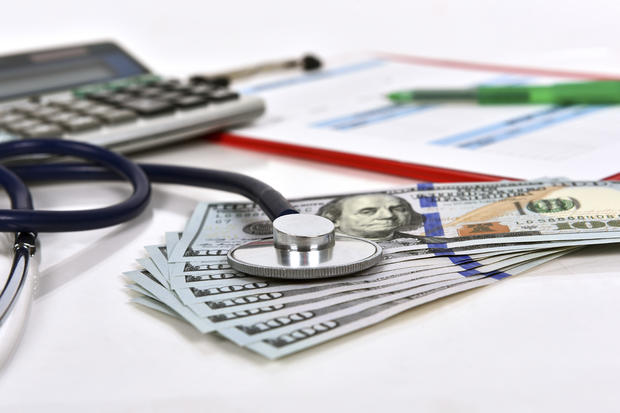5 ways to get more from your health savings account
If you're enrolled in a high-deductible health insurance plan, you may have access to a valuable savings tool. Health savings accounts (or HSAs) offer a tax-advantaged way to save for future medical expenses. And if you manage to take care of yourself and stay healthy, you can use your contributions to build your nest egg.
If you've got an HSA, here's how to make the most of it this year.
1. Bump up your contributions
The IRS routinely increases the annual contribution limits for various tax-advantaged accounts. For 2016, the limits on 401k(k) and IRA contributions remain the same, but you can chip in a few extra dollars to your health savings account if you have family coverage.
In 2016, you can save up to $6,750 in an HSA, which is an increase of $100 over the 2015 limit. If you're over 55, you can stash away an extra $1,000 in catch-up contributions, regardless of which type of coverage you have. Your HSA contributions are tax-deductible, so every penny counts when it comes to reducing your taxable income.
2. Cash in on employer contributions
If your employer offers to add money to your HSA on your behalf, there's no reason to pass it up. Then, you can use the extra money you would have contributed to that account to build an emergency fund or pay down debt. Just keep in mind that the total annual contributions that you and your employer make can't exceed the annual limit established by the IRS.
3. Be selective about how you spend
Just because you have money in your health savings account doesn't mean you should be in a hurry to spend it all. Unlike with a flexible spending account (FSA), your HSA contributions carry over from year to year so you can let your tax-advantaged savings pile up until you actually need to use them.
Nickel and diming your account just to meet your deductible can come back to haunt you. So can using your HSA funds to pay for services that you may be able to get at a discount or for free, especially if you develop a major health issue later on and you need money to cover your expenses.
4. Double-check the investment fees
An HSA isn't like a regular savings account. Depending on how your plan is structured, you may be able to invest your contributions in individual stocks, mutual funds, bonds or other securities. While that gives you an opportunity to grow your money faster, you need to be on the lookout for expensive fees.
For example, if you're investing in stocks through a broker, you may be charged a fee for each trade. With mutual funds, you'll have to pay attention to the expense ratio, which is the percentage of your investment that's used to cover the fund's operating expenses each year. If you don't run the numbers on the fees, you could shortchange your health savings account.
5. Don’t leave your HSA behind
If you decide to switch jobs, you don't have to forfeit the money you've accumulated in your HSA. You have the option of rolling it over into another health savings account the same way you would roll over a 401(k). The most important caveat to keep in mind here is that you're better off arranging for a direct transfer rather than moving the money around on your own.
If you initiate a rollover yourself and you don't redeposit the funds within 60 days, it's treated as a regular distribution. That means the money would be subject to income tax plus a 20 percent tax penalty if you're under 65.
Final word
Using a health savings account can be a great way to plan ahead for medical care, but you shouldn't assume you can just set up automatic contributions and forget about them. Taking an active interest in how your contributions are invested and being smart about spending can make a significant difference in how using an HSA pays off.





